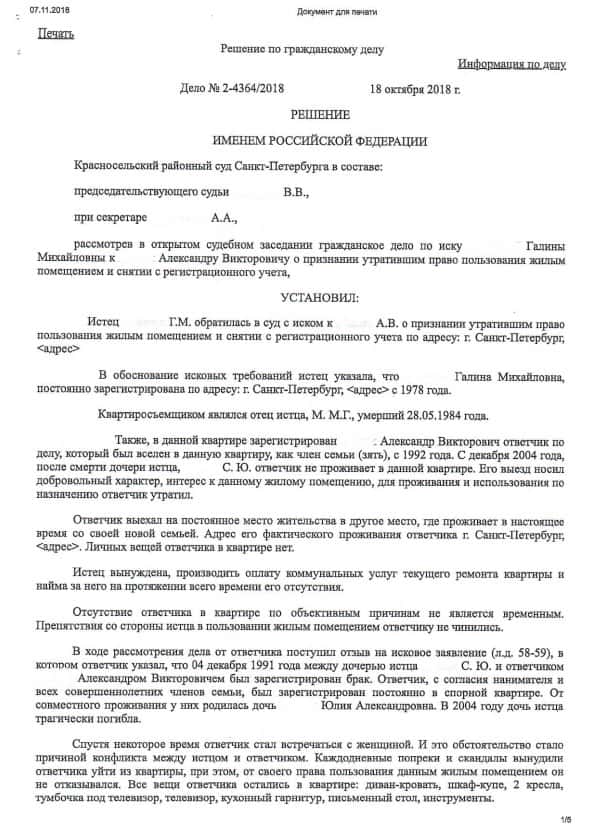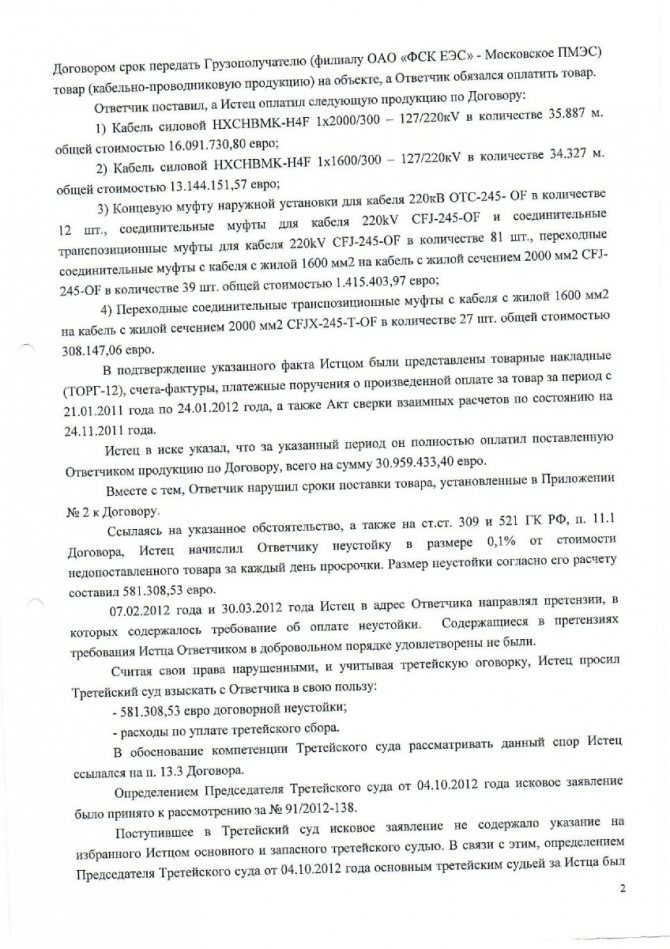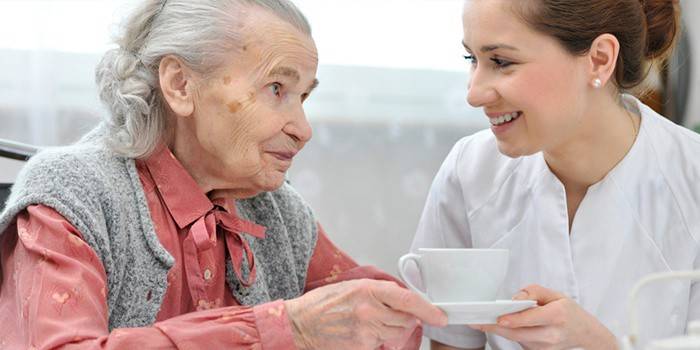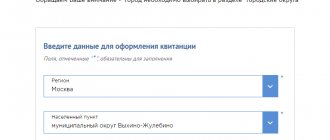2
The law establishes the need to appoint a legal representative for citizens who cannot independently represent their interests. If a person is declared incompetent, the guardianship department must select a guardian for him within 30 days. Otherwise, he will be transferred under supervision to a specialized organization. Often, relatives wish to independently care for sick relatives. Let's look at how to obtain guardianship over an incapacitated person.
Guardianship concept
Guardianship is the process of a guardian acting to care for an incapacitated person who has a physical disability (disability) and is unable to independently perform certain actions.
Incapacitated citizens include:
- adults who have been declared incompetent by a judicial authority;
- persons with confirmed disabilities;
- children under fourteen years of age.
Who can be the guardian of an incapacitated person?
The following categories of people can apply for guardianship:
- an adult (who has reached the age of majority);
- no criminal record;
- without alcohol addiction;
- capable;
- having positive personality traits;
- citizens who own housing (rent residential premises).
- having a normal relationship with the ward;
- satisfactory state of health.
Close relatives of incapacitated persons often express their desire. In certain cases, it is allowed to appoint a person who has temporary, partial legal capacity as a guardian. For example, a person who has reached the age of sixteen can be a guardian if they obtain permission from their legal representative.
What are the possible reasons for suspending or terminating guardianship?
Guardianship of minors will end the moment they reach the age of majority (cessation of childhood). It may also end if, after a court decision, the minor has received the right to marry. A child acquires full legal capacity when he begins to carry out entrepreneurial activities.
In order to obtain full legal capacity in such a situation, a person needs to contact the PLO; if the government body refuses, the person has the opportunity to resolve this issue in court. When a person reaches fourteen years of age, guardianship is established over them. Guardianship may end over a child if his natural parents have reached the age of majority.
Another reason why guardianship may be terminated would be the adoption of a child. The guardian will no longer be required to fulfill his obligations. The guardian himself may decide to cease performing guardianship duties. In this case, he needs to prepare an application and submit it to the specialist handling the case at the government agency.
Guardianship does not refuse such treatment and relieves the person of the duties of a guardian. This decision is aimed at not creating conflict, contradictory situations between the parties to the relationship. Guardianship terminates upon the death of one of the parties or transfer to a boarding school.
On what grounds is a person declared incompetent? First of all, it should be understood that the official recognition of a person as incompetent is an opportunity to protect him from harm to himself and others. Only a court can declare a person incompetent. To do this, two very important aspects must be taken into account.
- Medical (implies a psychiatric examination, which indicates the depth, nature and danger of the disorder). This procedure can be performed either at home or in a hospital. If a person refuses, the examination procedure is carried out forcibly.
- Legal (consists in the person’s confirmation of his lack of understanding of the actions he is committing). In this aspect, the court relies on the testimony of relatives, the board of trustees, as well as representatives of medical institutions).
In order to start a case for declaring a person incompetent, it is enough to draw up a paper that must be submitted at the place of residence (if the citizen is undergoing treatment in a medical institution, then the application is written at the actual place of treatment).
What are the possible reasons for suspending or terminating guardianship? This is provided for by the Civil Code, Art. 39-40 and includes the following points:
- death of the person under guardianship or trustee;
- the document indicating the period for appointing a guardian has expired;
- if the trustee himself abandons the ward;
- conflict of interest;
- if the guardian does not fulfill his obligations;
- recognition of the ward as legally competent.
Registration of guardianship is a complex process both from a moral point of view and from a legislative point of view. This issue should be approached rationally. In any case, guardianship makes it possible to maintain a decent life for the person under guardianship, no matter what age he is
Customer Reviews
Thanks to Kavaliauskas V.A. I would like to express my deep gratitude to Vasily Anatolyevich, an employee of your company, for his enormous support and competent defense of my case. And also for having a good attitude towards people. I will recommend your organization to all my friends and family.
I wish you success and prosperity,
05/14/2018
Gratitude I express my deep gratitude to lawyer Konstantin Vasilyevich for his attentive, kind, and, most importantly, very clear and competent explanation of my situation. It's nice to know that the world is not without good people. I wish Konstantin Vasilyevich good health, success in everything, prosperity, good, grateful clients and all the best. Sincerely.
Gratitude from Antonov Arkady I, Antonov Arkady Shanobich, turned to the Legal Agency of St. Petersburg for help due to the fact that when concluding an agreement for spinal treatment with Medstar, I was actually deceived in the cost of treatment and more. During the process of drawing up a treatment contract with me, no one explained to me that the treatment would be carried out using credit funds; the amount of treatment was constantly changing. My requests to be given longer time to familiarize myself with the procedures and consultations at their price list were refused. That is, there was actually pressure on the client. At home, when I carefully read the entire document, I realized that I had actually been deceived about money and treatment time. On October 30, 2018, I applied for legal assistance from the Legal Agency of St. Petersburg regarding the termination of the contract for treatment at Medstar and the termination of the loan agreement from Alfa-Bank. My case was handled by Denis Yurievich Stepanov, all issues were resolved very quickly and I was informed about all situations. I would like to thank Stepanov D.Yu. and all lawyers who work in this agency.
November 21, 2021
Gratitude from P.V. Greshina I would like to express my deep gratitude to the employees of your company - Sergei Vyacheslavovich Mavrichev and Konstantin Vasilyevich Solovyov for their enormous support, for their competent explanation and good attitude towards people. I wish you success and prosperity.
Greshina P.V. 03/23/2018
Thanks to Mavrichev S.V. from Bars Dan A. I thank the wonderful Lawyer Sergei Vyacheslavovich Mavrichev for thorough, competent advice and human mutual assistance to all his clients who are in deep need of qualified and timely legal and psychological advice.
Leopard Dana A. 09/18/2018
Review by Minina M.V. I would like to express my deep gratitude to Yuri Vladimirovich Sukhovarov for his competent advice and qualified assistance on my issue.
With gratitude, Minina Margarita Vladimirovna.
Review by Lurie L.D. I, Lurie L.D., want to express my gratitude and gratitude for the competent advice and cordial attitude towards me as a client.
Thanks to Pavlyuchenko A.V. from Radhuan M. Dear Pavlyuchenko Alexander Viktorovich. Let me express my sincere gratitude for the qualified legal assistance provided. Thanks to your professionalism, I was able to achieve a decision in my favor. I wish you further prosperity and professionalism.
Radhuan Mohamed 06/08/2018
Gratitude from Ustinova T.M. I would like to express my deep gratitude to Sergei Vyacheslavovich for the legal services provided when I had a difficult relationship with Beauty Salon LLC and Alfa-Bank.
Ustinova T.M. November 10, 2018
Gratitude from Natalya Gurova I would like to express my gratitude for the qualified and friendly advice from legal practitioner Daria Igorevna Zaprudnaya, Vasily Anatolyevich Kavalyauskas and Daria Valentinovna Kutuzova. The environment at the law firm is welcoming and professional. I wish you continued prosperity. Thank you for your help.
Best regards, Natalia Gurova. 07/06/2018
The legislative framework
| Articles | Description |
| 145 | Algorithm of actions of guardianship authorities when registering guardianship. |
| 146 | Basic requirements for candidates. |
| 148 | Rights of wards. |
| 148.1 | Rights and obligations of persons appointed as guardians. |
Guardianship can also be revoked legally. You can read about a similar phenomenon in verses 39 and 40. Civil Code of the Russian Federation.
Guardianship of an incompetent elderly person and a child is established based on the norms of the Civil and Family Code of the Russian Federation and legislative acts adopted by the Government.
Article 145 of the RF IC describes the procedure for appointing a guardian. Article 146 of the RF IC contains the requirements that applicants for guardianship must meet. Article 148 contains a list of rights of wards. Articles 39, 40 of the Civil Code of the Russian Federation contain a list of reasons for stopping patronage.
- The main document from which all concepts (Article 2), rights and obligations and other issues arise is Federal Law No. 48 “On Guardianship and Trusteeship”, as amended on December 31, 2017.
- The Civil Code defines all the requirements that apply to guardians.
- The Family Code regulates the specifics of guardianship registration.
- The list of diseases that do not allow the registration of guardianship is presented in Decree of the Government of the Russian Federation No. 117 of February 14, 2013.
What are the consequences of declaring a person incompetent?
The sample application must be drawn up in accordance with the norms of the Code of Civil Procedure of the Russian Federation and it must contain the following information:
- the authority to which the application is submitted;
- personal data of the applicant;
- document's name;
- information about the person who needs to be declared incompetent;
- justification of your requirements;
- link to the evidence base;
- put forward requirements;
- list of documents;
- date of compilation and signature.
What are the consequences of declaring a person incompetent? These factors come into force only after a court decision. Namely:
- prohibited from marriage;
- divorce in this case occurs according to a faster scheme and unilaterally;
- an incapacitated citizen does not have the right to enter into any transactions or sign contracts;
- does not have the opportunity to take part in elections;
- an incapacitated person cannot independently dispose of property.
Registration procedure
How to obtain guardianship over an incapacitated person?
The applicant should do the following in this order:
- Preparing a package of papers.
- Visiting government agencies.
- Submitting an application plus supporting documents.
- Consideration of the appeal.
- Setting the solution and directing the response.
We invite you to read: Response to the requirement for discrepancies between VAT revenue and current account
In order to formalize guardianship over an incapacitated relative, you need to prepare the following documents:
- completed application;
- document confirming permanent income (certificate from place of employment);
- salary certificate for the previous year;
- documentary evidence of ownership of residential space (apartment rental agreement, purchase and sale agreement);
- medical confirmation of legal capacity;
- a document assessing the personal qualities of the applicant from the place of employment;
- autobiography.
A certificate about the condition of the person who requires guardianship is provided by the medical institution performing the supervision.
Guardianship may be denied to applicants who have the following characteristics:
- alcoholism;
- lack of stable income;
- problems with law;
- lack of housing.

If a person does not own real estate, but is able to rent residential premises and pay money under this agreement, this will not be a basis for refusal.
Court decisions

Problems with a travel agency
Collection of a fine from a counterparty

Dispute in the arbitration court at the RSPP
Accident at a pedestrian crossing
What are the consequences of paying a small fine for an administrative offense?
What is the procedure for obtaining guardianship?
As long as a citizen is legally competent, he can independently carry out legally significant actions, understand the essence of what is happening, and take care of himself and his property. However, due to a mental disorder, the court may declare a person completely incompetent. This fact must be confirmed by a medical report, acts of the guardianship authorities, and other evidence.
The law also allows for temporary restrictions on legal capacity, after which a guardianship regime can be introduced. Under guardianship, a citizen can himself carry out legally significant actions, but most transactions require the consent of the trustee. You do not need to obtain permission for small household transactions.
The procedure for introducing guardianship over an incapacitated citizen consists of the following stages:
- conducting a medical examination to determine a mental disorder;
- filing an application with the court demanding recognition of incapacity (relatives, guardianship authorities, and other authorized departments can file a claim);
- issuance of a judicial act;
- submitting an application for establishment of guardianship to the guardianship department and other necessary documents;
- making a decision to appoint a guardian.
The decision to introduce guardianship will be made by the head of the local administration based on the conclusion of the guardianship department. The order will indicate the period for which guardianship is introduced, the procedure for disposing of the property and financial assets of the ward, and other conditions. If the court subsequently finds that the citizen’s legal capacity has been fully restored, the guardianship regime will be cancelled.
What is the procedure for obtaining guardianship? This is a rather lengthy procedure that takes time. Registration of guardianship occurs after a decision is made by the court and in several stages:
- The court's recognition of a person's incapacity is sent to the guardianship authority (at the person's place of residence) within three days after the verdict is issued.
- Guardianship is granted for three months. If a guardian is not found within this period, then this function is entrusted to the guardianship and executive body.
- If there is a guardian, he submits an application to the guardianship authorities.
- Next, seven days are given to process the application; the guardianship authorities may also request additional papers, which must be provided very quickly. Inspection of housing and conditions also takes place at this stage. An additional three days are allocated for completing the entire survey report.
- Then the guardianship authority analyzes and analyzes all collected data within 15 days.
When a decision is made, the applicant is notified within three days by a special act.
To establish the fact of a person’s incapacity, it is necessary to prove his inability to use civil rights, manifested by:
- in not understanding the meaning of what is happening around;
- inability to understand one’s actions and give an account of them;
- loss of ability to direct actions.
Attention: at the state level, guardianship issues are dealt with by the guardianship and trusteeship authorities (TCB).
Adult citizens are deprived of legal capacity only by a court decision. But first, a full examination in a psychiatric clinic is necessary. It is carried out:
- Voluntarily, when the patient consents to manipulation.
- Forcibly, in case of a threat to the life and health of other persons.
Attention: the examination is carried out by specialists using modern developments recognized internationally.
After receiving the doctor's opinion, the next step is to apply to the judicial authorities. It is regulated by Art. 281 of the Civil Procedure Code (CCP). An application for recognition of incapacity can be submitted by:
- relatives living:
- together with the patient;
- separately;
- OPP at the place of registration;
- the medical institution where the citizen is observed;
- the hospital (boarding school) in which he is kept.
What is the law prohibiting a guardian from doing?
A person who is legally entrusted with guardianship over an incapacitated citizen of the Russian Federation must not:
- claim the property of the ward;
- spend the money of the person under your care for your own needs;
- use movable and immovable property in your own interests;
- without the knowledge of the ward, sell, exchange any property of a person without the consent of the regulatory authority;
- deprive the person to whom he is assigned of basic needs - food, water, etc.
Only an adult capable citizen can become a guardian for an incompetent person in 2021, and only with his personal consent.
Close relatives of a person have the priority right to be a guardian: spouses, parents, adult children, grandparents, aunts and uncles.
Remember that if within a month after a decision is made to declare a person incompetent, a guardian is not assigned to him, then the responsibilities of the guardian will transfer to the guardianship authority.
If a relative applies for guardianship, then he must draw up a written application, collect the necessary documents and submit them to local authorities.
Then wait for a decision from the guardianship authority, after which all rights and obligations can pass to it.
Similar articles:
- Characteristics of the child to the guardianship authorities
- Application to the guardianship authorities about improper upbringing of a child
- Guardian report
- How to write an autobiography for the guardianship authorities?
- Foster family for the elderly and disabled
- Previous entry Guardianship of a disabled person of groups 1 and 2
- Next entry What payments, benefits and allowances are available to a foster family?
2 comments on the article “Who can be the guardian of an incapacitated person?”
- V
A. N writes:Who is the guardian of a 2nd degree disabled person who is deprived of legal capacity while in a medical institution, and who continues to be there to this day, if the guardian is not among the relatives? No applications for guardianship were filed. A year has passed.
Answer
- V
A. N writes:
Can the management of a hospital where a group 2 disabled person is deprived of legal capacity (there is no guardian according to the application), at the request of the patient, give out money from the patient’s pension for food purchases?
Answer
Rights
Legislative norms determine that a guardian has the following rights:
- receive state benefits and benefits;
- draw up an appeal to government agencies;
- apply for payments in the event of damage to an incapacitated person;
- stand up to protect the property of the ward by legal means (certify the signature of the ward);
- contact the hospital on behalf of the ward to receive free help.
The state gives the guardian four extra days off every month. If a person does not use these days, he can use the weekend in another month. Due to the state of health of the ward, his guardian may take additional leave from work for a period of two weeks. Paid leave will not be given and wages will not be paid. The guardian also has the right to refuse long business trips to other localities.
The list of responsibilities of a guardian of an incapacitated citizen is as follows:
- Buy products, things and make other transactions to meet the vital needs of the person under guardianship.
- Monitor the hygiene, nutrition and health status of the incapacitated person.
- Uphold the rights of the ward and protect his interests in any controversial situations.
- Carry out responsibilities on behalf of the person under care, for example, paying bills.
- Properly manage payments received from the state (pension, benefits). They can be spent exclusively on the needs of the ward.
- Apply to the court if the legal capacity of the ward citizen is partially or fully restored.
- Protect, defend and try to increase the property of the ward.
When registering guardianship of a child, the list of responsibilities will also include education, conflict prevention and care for all-round development. Until the age of 16, a minor ward is required to live together with his guardian in the same apartment. Children from 16 to 18 years old rent separate housing, in accordance with Art. 36. Civil Code, may upon receipt of the consent of the PLO.
The government has legally established the following rights of guardians:
- Apply to the authorized bodies (court, prosecutor's office, pension fund) for the collection of alimony, provision of benefits, allocation of allowances and other payments.
- Protect the rights of the ward by communicating on his behalf with the court or law enforcement agencies.
- Demand compensation for damage caused to the health of the ward when such an incident is detected.
- Take acceptable measures to protect the movable and immovable property of an incapacitated citizen.
- Contact medical, educational and other institutions to receive certain services. Their cost will depend on the pricing policy of the establishment.
A person caring for an incapacitated citizen does not have the right to freely dispose of his property. Any transactions for the sale, exchange or division of property are discussed with the guardianship authorities. They can agree to such a transaction only in the interests of the ward. Selfish actions are stopped immediately.
The guardian has the right to give gifts to the ward. When transferring property (apartment, car), a gift deed is drawn up and notarized.
We suggest you read: Can a criminal case be initiated for loan debt?
The person appointed by the PLO may incur administrative, criminal or property liability for abuse of rights or inaction. If there was intentional damage to the ward's property, the guardian will be forced to pay compensation. If an official representative fails to act, due to which an incapacitated citizen is injured, administrative or criminal liability is possible.
The rights and obligations of the trustee are provided for by the Civil Code, Art. 37-38.
The guardian has the following legal rights:
- Be the first to appear in the case of your ward, protecting his rights wherever necessary (the guardian always acts in the interests of his ward).
- The guardian can completely control the actions of his protégé.
- The trustee may file lawsuits on behalf of the ward.
- The guardian can live in the apartment of the ward.
- The guardian also has the right to independently (without the ward) visit medical institutions and call a doctor to the ward’s home.
- All social payments (they are paid in the amount of 1,200 rubles) and benefits are under the control of the guardian, and he can freely dispose of them (to support his ward). At the same time, he has the right not to notify the guardianship authorities.
- The trustee can also file a petition with the court to recognize his ward as legally competent if the latter has made positive changes.
The trustee also has obligations to the ward and the state:
- He must carry out an inventory of his ward’s property within three days from the date of assigned duties.
- A guardian must act solely in the interests of his ward.
- If the place of residence of the guardian and his ward has changed, then the guardianship and trusteeship authorities should be notified about this.
- The trustee has the right to defend himself and his ward in any instance.
- If the guardianship authorities give their consent, the guardian can enter into monetary agreements on behalf of the ward.
- Paying the ward's taxes is also the responsibility of the trustee.
- Every year, the guardian must submit a report to the guardianship authorities about the spent funds of the ward.
The relationship between a guardian and an incapacitated elderly person is formalized by an agreement. Responsibilities that are specified in it:
- protect the rights of the ward in all instances;
- make transactions on his behalf;
- manage property based on the interests of the ward;
- organize care;
- provide treatment;
- monitor the condition of housing;
- seek advice from medical institutions;
- organize quality food;
- submit a report to the guardianship authorities.
The guardian has the rights:
- make decisions on behalf of an incapacitated person;
- defend his interests in court and government organizations;
- provide care and control of the health of the ward;
- choose medical institutions;
- submit an application for benefits;
- spend funds on the ward at your own discretion;
- include the time of guardianship in the length of service when calculating a pension;
- write an application for a free vacation.
In case of violation of the terms of the contract, the inspection authorities may deprive the right of guardianship to care for an elderly person. The reasons for this action may be:
- incapacity of the guardian himself;
- lack of necessary care;
- use of guardianship for personal gain;
- the patient being unattended;
- misappropriation of funds;
- deterioration of health due to poor care;
- lack of food for the ward;
- failure to provide required medications;
- restoration of the patient's capacity.
You can issue a waiver of guardianship for an elderly ward by writing a statement. This happens in cases such as:
- change in material condition;
- serious illness of the caregiver;
- loss of legal capacity;
- conflict situations with the ward;
- loss of ability to work;
- decision of the guardianship authorities;
- expiration of the contract;
- death of a guardian or ward.
The guardian bears full legal responsibility and is responsible for raising children under fourteen years of age. He is a legal representative appointed by the court or guardianship authorities. The guardian must fulfill the responsibilities of raising the child. Guardianship can also be established over adult incapacitated citizens (for example, disabled people).
A trustee is a person who provides assistance and assistance in the exercise of rights to persons from 14 to 18 years of age or persons who are not fully capable. Emancipated citizens over 16 years of age can prove their full legal capacity; a guardian is not appointed for them.
When a child or citizen in need of care is identified, specialized authorities search for and appoint a caregiver within one month. Until this time, the guardianship and trusteeship authorities are responsible for him.
Differences between full guardianship and social protection
A guardian of people of respectable age, without the ability to bear his civil obligations, has fairly broad powers.
Since a person who is incapable of civil law is not able to personally exercise his rights. All powers belonging to him are performed by his guardian. The person who has taken guardianship of an elderly person has the right to live with him or her separately. When living together, most often the old man moves into the guardian’s home. It may be the other way around - with the permission of the authorized body (this happens when the guardian does not have housing where the ward lives).
Guardians of civilly incapable persons can enter into a variety of legal relationships on their behalf and make transactions in their interests without a power of attorney.
Attention! All social benefits due to the ward are transferred to the guardian’s bank account. Guardians use this money in the interests of the elderly without obtaining the consent of the authorities.
An expense report is prepared every year. The guardian has the right to dispose of the property of the ward only in the interests of the first and after the approval of the executive body.
In patronage, the rights and obligations of the accomplice and the person of respectable age are regulated in detail by an agreement concluded between them. This may be a trust property management agreement, instructions or other agreement.
The responsibilities of a nursing assistant include:
- execution of orders of the ward - both household and legal;
- notifying the ward about the completion of his tasks;
- management of the ward’s property for his benefit (renting, etc.).
To avoid disagreements, it is necessary to reflect in as much detail as possible the responsibilities of the assistant in the agreement with the elderly person.
It is worth specifying:
- what kind of housekeeping assistance should be provided to the assistant;
- in what volume and with what frequency;
- where the ward will live all this time and much more.
The assistant has the right to claim compensation for his expenses incurred in providing assistance to an elderly person. Therefore, the contract may also provide for the right to remuneration for their services paid to the ward.
Important! The patronage assistant is not entitled to any payments from the budget.
An elderly person's assistant is not the legal heir of the person under guardianship. Only if it is mentioned in the will.
The law imposes an obligation on the guardianship authority to monitor the activities of the assistant. Identified violations may be the reason for termination of the agreement. If a contract of agency has been chosen to formalize the relationship, each party has the right to terminate it at any time.
How to become a guardian for an elderly person
Who can become a guardian for an elderly incapacitated person? First of all, it is worth noting that the guardian must agree to these powers. This must be a person with a stable psyche, decent. If the guardian and his ward are on good terms, then this is only a plus. But the guardianship and trusteeship authorities put forward their own demands:
- the guardian must be an adult;
- full legal capacity and ability to work of a citizen;
- if the applicant was deprived of parental rights in the past, then such a person is subject to very serious doubts and is unlikely to be able to become a guardian;
- the guardian must not have a criminal record.
It is believed that the onset of old age is at 60 years of age. If a pensioner has a healthy head, but is unable to take care of himself, he can ask for foster care. To do this, you must submit an application to the guardianship authorities. He can choose the person who will help him himself.
When caring for an elderly grandmother, relatives often do this out of attention to the person, out of a feeling of love. However, few people know that they have the right to benefits from the state. Payment will only be made when a special application is submitted. Anyone wishing to arrange care for an elderly relative must collect a package of documents and submit their application to the court. A psychiatric examination of the patient is ordered.
An elderly person is declared incompetent for guardianship purposes in court. If the relative will live with the ward, an additional inspection of the housing is carried out to ensure compliance with all standards. If the requirements are met and all documents are successfully verified by the candidate, the relevant authorities will issue a positive decision to formalize guardianship.
Patronage
What is the best way to arrange guardianship for an elderly person if he can independently decide issues, but is not able to take care of himself or exercise his rights in various bodies? A person must choose a curator himself - not necessarily a relative. You must submit an application to the guardianship authorities and give your written consent.
We suggest you read: How to take a child from your wife during a divorce
Benefits and allowances
Let's consider what benefits a representative of an incapacitated person can receive. A guardian of an adult has significantly fewer benefits than a representative of a minor.
So what is a guardian's right to? When financial compensation is assigned from the Pension Fund, the citizen receives seniority. It ceases to flow from the moment of removal or release from duties, as well as in the event of the death of one of the parties.
Monitoring the performance of duties
The implementation of guardianship over adult incapacitated citizens is controlled by PLO employees. Over the course of a month after the establishment of guardianship, a government agency employee may carry out several on-site inspections. It is carried out at the place of residence indicated in the case materials. Inspections can be carried out according to a plan with a warning to the guardian, and they can also be unscheduled without warning. The first inspection must be carried out with advance notice to the person.
The purpose of the checks is as follows:
- assessment of living conditions;
- assessing the level of care for the person under care;
- human nutrition assessment;
- availability of all essential things, items for personal use.
During the first four months, government agencies will conduct another inspection. An audit may also be carried out during the first year of guardianship. A representative of the PLO authorities has the right to get acquainted with the full report on the embezzlement of funds. If expenses are identified that were not intended for their intended purpose, the guardian may be held accountable. This may be a reason to terminate guardianship.
What documents are needed to register guardianship and does it include a medical certificate?
If your candidacy nevertheless meets all the requirements of Russian legislation, then now in order to establish guardianship or trusteeship of a child you need to collect the necessary package of documents:
- a certificate from the police that there is no criminal record,
- certificates from work confirming salary amounts,
- from a medical institution about health status,
- marriage registration certificate (if any),
- passport of a citizen of the Russian Federation,
- personal characteristics (biography, level of education, place of work, place of residence, health status, availability of completed courses, etc.),
- you can provide additional characteristics from your employer or neighbors,
- written consent of a child over 10 years old.
Particular attention should be paid to the characteristics, since it will make both an initial impression and will present basic information, which is then verified against other documents. It is important to provide all information correctly, competently and as completely as possible.
What documents are needed to register guardianship and does it include a medical certificate? This certificate must be present among other documents that the applicant submits when registering guardianship. The thing is that a person with chronic or life-threatening illnesses cannot obtain guardianship over another person. Among these diseases are:
- tuberculosis;
- any infectious diseases that do not go into remission;
- cancer diseases;
- psychological disorder;
- dependence on alcohol, drugs and other intoxicating substances;
- first group of disability (its causes do not matter).
The applicant can see the necessary doctors (the list of which is established by Order of the Ministry of Health No. 29n 2014.18.06) at any state or private institution that is licensed.
The general list of documents for guardianship includes the following papers:
- certificate from place of work;
- medical certificate;
- consent (must be in writing) to live with an incapacitated person from all adult citizens who live with a guardian;
- a certificate that the applicant has received training to care for the incapacitated;
- autobiography (characteristics from the place of work).
In order to recognize a person as incompetent, the interested party needs to prepare a package of documents and apply to the court with them. A statement of claim should be filed.
The following accompanying documents must be attached to them:
- passport;
- medical report on the presence of psychological disorders;
- written statements of witnesses;
- other documents confirming the need to recognize incapacity;
- receipt of payment of state duty.
Rights and responsibilities of a guardian of an incapacitated citizen
- Age. There must be an age difference between the guardian and the ward - at least 16 years. The only exceptions are close relatives: for them, reaching the age of majority is sufficient.
- Health. Guardianship cannot be established by a person with serious illnesses: HIV, tuberculosis, AIDS, etc. The absence of illnesses is confirmed by a medical certificate provided to the guardianship authorities.
- Positive characteristic. OOiP may request a reference from the place of work. It is drawn up by the employer and must contain a description of the personal and professional qualities of the applicant for guardianship.
You might be interested ==> Act on Financial Responsibility of a Senior Locksmith
How to obtain guardianship: step-by-step instructions
Some documents have a limited validity period - 1 month - therefore it is recommended to submit them to the POiP immediately after receipt. If guardianship is established over a minor, a certificate of completion of guardianship courses is required.
A group of members of the Federation Council proposed changes to the system of organizing guardianship and trusteeship. It is proposed to introduce a mixed (dual) guardianship system, in which powers can be divided between several people.
Removal from guardianship
A person can remove himself from guardianship duties himself. In addition, the guardianship relationship can be terminated by the POO in the event that violations committed by the guardian are discovered. Suspension is applied if the OOP specialist reveals significant violations. To do this, a person must fulfill his obligations poorly. Suspension is also applied when there is a violation of the interests and rights of the ward.
A group of neighbors can initiate termination. To do this, they must prepare a complaint and submit it to guardianship. A received collective complaint is considered and an investigation is sent within three days from the date of receipt of the complaint.
The evidence base in such cases may include:
- medical certificates;
- testimony of witnesses confirming the inappropriate, unworthy behavior or lifestyle of the guardian.
A guardian may be deprived of the rights and responsibilities if it is discovered that money allocated to the ward is being wasted only for his own needs, without taking into account the needs of the person under guardianship. The person who decided to file a complaint must have a passport and evidence. If these are witness statements, they must be documented in writing in any form.
In this case, the complaint must contain the following information:
- personal data of the applicant;
- indications;
- time of observed violation on the part of the guardian;
- date of compilation and signature.
The completed document must be sent to the Public Organization at the place of residence of the participants in the relationship. The document will be the basis for convening the commission. After the inspection, the commission members draw up a report. This document is compiled in three versions. If government authorities do not respond to the complaint, the applicant has the right to send the complaint by Russian Post.
How is guardianship of an elderly incapacitated person obtained?
How is guardianship of an elderly incapacitated person obtained? If an elderly person does not suffer from mental disorders or is partially competent due to illness or age, then in this option, patronage is arranged with a trust agreement for property management. All papers are prepared by the guardianship authorities; for patronage they are exactly the same as in the standard procedure.
If an elderly person is incapacitated, then the procedure for registering guardianship is no different from the standard one.
Conditions for obtaining social protection
The Civil Code of the Russian Federation regulates the rules observed when establishing social protection over people of respectable age:
- the person seeking outside assistance is not mentally ill (since patronage for mental defects is allowed only as full-fledged guardianship);
- the presence of consent of the potential ward and the candidate for his patrons (assistants);
- Social security workers who help the elderly at home should not become accomplices;
- Relatives and complete strangers have the right to become accomplices (most often close relatives are appointed as such),
- Various types of agreements are concluded between accomplices and an elderly person:
- agency agreements;
- assignment;
- trust property management.
The status of social contributors is based precisely on the content of such a document. Guardianship of those disabled due to illness is also formalized in the form of social protection, if such disability did not arise due to mental defects.
Case studies

Citizen Krivulya I.S. appealed to the guardianship department with a petition to appoint her as the guardian of her old father. A specialist from a government agency explained to her that this requires a court decision declaring her father incompetent. The woman turned to psychiatry and collected all the medical certificates to confirm that her elderly father had mental disorders and had also suffered a stroke.










